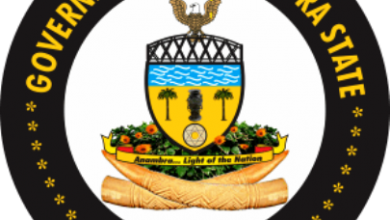
By Alfred Ajayi
Nigeria Police is the oldest law enforcement agency in the country having been established in 1820. While other security agencies have emerged since then, the role of the police in maintaining law and order across the nooks and crannies of the country has never been negotiable. They are charged with ensuring day to day orderliness in society, hence their close relationship with the citizenry. This is the reason any form of misconduct on the part of the police has far-reaching implication for the society.
To ensure that the police is well-managed and personnel conduct themselves in appropriate manner, the agency is guided by an Act with several provisions all aimed at ensuring professional policing that delivers on its all-important mandate to the populace.
The 2020 Police Act came 77 years after the last Act enacted in 1943 to address the irregularities or inadequacies of the old Act with provisions considered archaic and unfit for the time. The 2020 Police Act introduced several innovative provisions aimed at reforming police practices and enhancing accountability. It provides for a more effective and well-organized Police driven by the principles of transparency and accountability in its operations and management of its resources.
The Act redefines the mission of the Police by re-envisioning it as a democratic, professional, and accountable force, moving away from its colonial legacy. It establishes clear processes that regulate police powers, promoting transparency and reducing discretionary abuse as well as focuses on building trust and partnerships between police and communities to address local concerns collaboratively.
It abolishes abusive practices and police brutality by significantly reducing excessive use of force by police officers. It emphasizes lawful detention protocols to protect citizens’ rights while also enhancing oversight mechanisms to deal with corrupt practices within the police. The Act also prohibits gender discrimination and promotes fair treatment across all demographics.
Unfortunately, the provisions have remained top secrets to Nigerians they are meant to serve. For instance, its section 36 prohibits arrest in lieu, putting an end to the traditional practice of arresting for instance the father for a crime committed by his son, for whatever reason. Under the 2020 Act, the soul that sins must account for and be tried for his offence.
Section 35 sub-section 1 states that except when the suspect is in the actual course of committing an offence or is pursued immediately after the commission of an offence, or has escaped from lawful custody, the police officer or other person making the rest shall inform the suspect immediately of the reason for the arrest. Sub-section 2 prescribes that the suspect must also be reminded of his right to remain silent or avoid answering any question until after consultation with a legal practitioner or any other person of his own choice. He also has the right to consult a legal practitioner of his choice before making, endorsing or writing any statement or answering any question put to him after arrest as well as free legal representation by Legal Aid Council of Nigeria of other organizations where applicable.
According to section 37 sub-section 1a, a person being arrested must not be treated in degrading and dehumanizing manner. Rather, he or she must be accorded humane treatment having regard to his right to the dignity of his person. Sub-section 1b forbids a suspect from being subjected to any form of torture, cruel, inhuman or degrading treatment.
A question often asked at the point of arrest is for warrant of arrest, a document that empowers the officer to effect the arrest. However, section 38 sub-section 1 permits arrest without warrant if the offence is committed before the police officer or the person obstructs the police officer from discharging his statutory duties, attempts or has attempted to escape from lawful custody.
The police can also arrest anyone suspected on reasonable grounds to be a deserter from any of the armed forces of Nigeria or on whom property reasonably suspected to have been stolen is found. Apart from such circumstance mentioned above and many others not mentioned, section 38, sub-section 2 says the police has no right to effect an arrest without a warrant.
Section 39 permits a private person to arrest fellow citizen who commits an offence in his presence or is reasonably suspected to have committed an offence for which the police is entitled to arrest without a warrant. Section 40 compels the individual, who arrests a suspect to hand him over to police officer or take him to the nearest police station in the absence of a police officer. Section 40 sub-section 5 mandates the police officer to get a formal witness statement from the individual who made the arrest, setting out the facts and circumstances of the arrest.
With many other provisions, the Act seeks to sanitize policing in the country. Regretably, most Nigerians are not aware of this all-important law. This informs the interventions by civil society organizations to fill the knowledge gap through sensitization campaign.
In November 2024, one of the NGOs, the Rule of Law and Empowerment Initiative also known as Partners West Africa – Nigeria (PWAN), gathered many journalists from the South East Region in Enugu for a media Town Hall on Human Rights, the Police Act 2020 and Regulations with a view to raising their capacity on the provisions of the Act.
One occasion, PWAN’s Executive Director, Kemi Okenyodo, whose message was delivered by the organization’s Monitoring and Evaluation Officer, Nkem Okereke, noted a significant disconnect between police operations and community expectations. She said, “the project seeks to address critical gaps in the understanding and application of the Police Act 2020 and the accompanying regulations within the Nigerian Police Force (NPF). This will improve the knowledge of the police officers and citizens of recent changes and reforms within the police force and further improve human rights application as contained in the Act.
“Through this town hall meeting, we aim to promote awareness of citizens’ rights under the Police Act 2020, allowing us to address the gap in public knowledge regarding human rights and the provisions of the Police Act 2020.
The project, she added, equally seeks to ensure that police officers are accountable to the public in the discharge of their statutory duties. “Many citizens remain unaware of their rights under the Act, and as a result, may lack the confidence to hold the police accountable for misconduct or abuses of power,” she said.
The Executive Director, Rule of Law and Accountability Advocacy Centre, (RULAAC), Okechukwu Nwanguma, who jointly facilitated the training, regretted the low level of awareness among police officers and citizens, even as he mentioned the gains of getting every Nigerian aware of the provisions of the law.
“It empowers the citizens to assert their rights effectively and hold the police accountable for their actions. It also enhances understanding and fosters cooperative relations between communities and law enforcement. Increased awareness will also reduce abuse as citizens are more likely to report abuses, encouraging systemic reforms”.
Nwanguma also made recommendations for greater awareness and accountability. “Government should implement workshops and media campaigns to educate citizens about their rights and the Act’s provisions. There should be collaboration with NGOs to disseminate information and facilitate discussions.
“Social media platforms should be leveraged to reach broader audiences, especially younger individuals. There is a need to establish feedback mechanisms to strengthen the Complaints Response Unit for reporting police conduct issues.
“Continuous training is solicited for police on the Act’s provisions for law enforcement officers. Government should encourage initiatives to promote the Act through public service announcements and outreach efforts.
“By implementing these recommendations, the potential for raising awareness and fostering accountability within Nigerian policing can be maximized, ultimately contributing to a culture of respect for human rights and improved community relations,” the RULAAC ED concluded.




